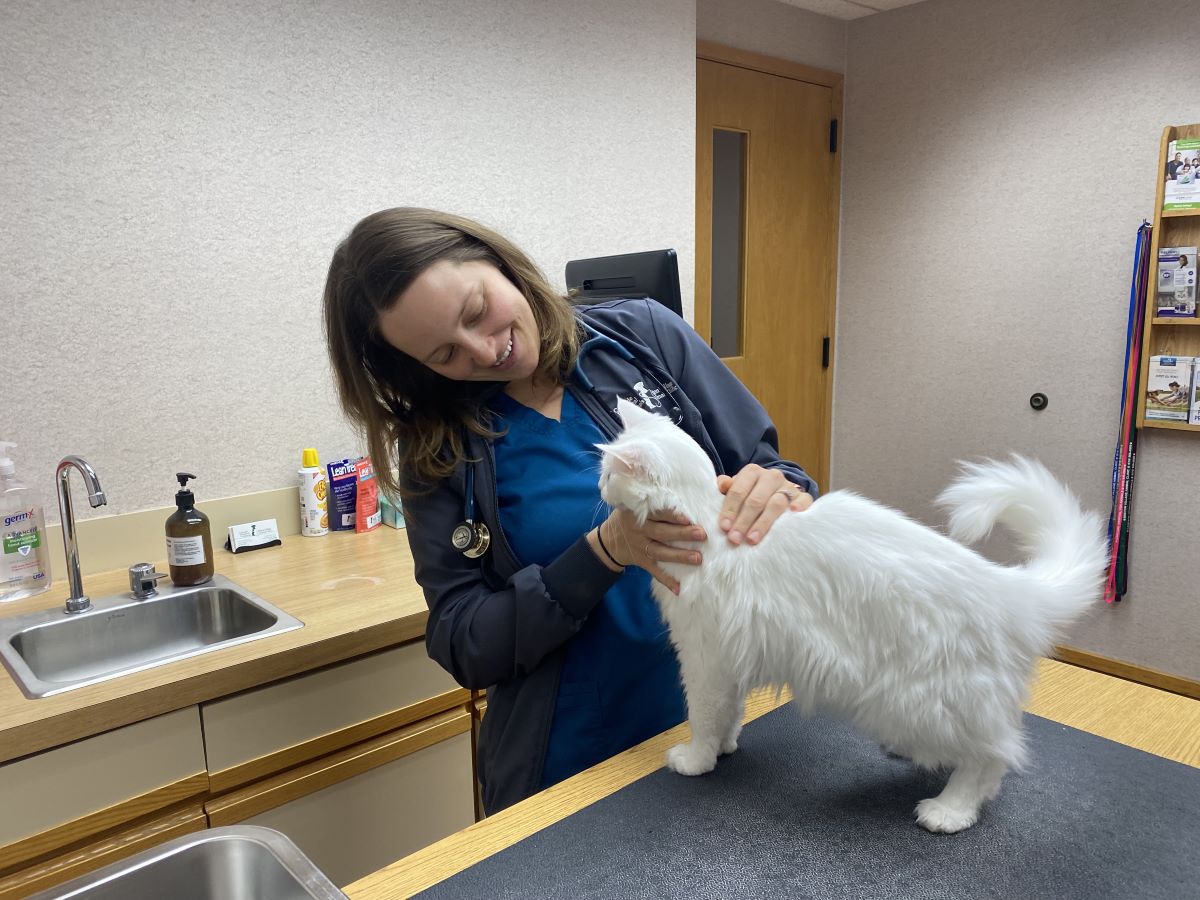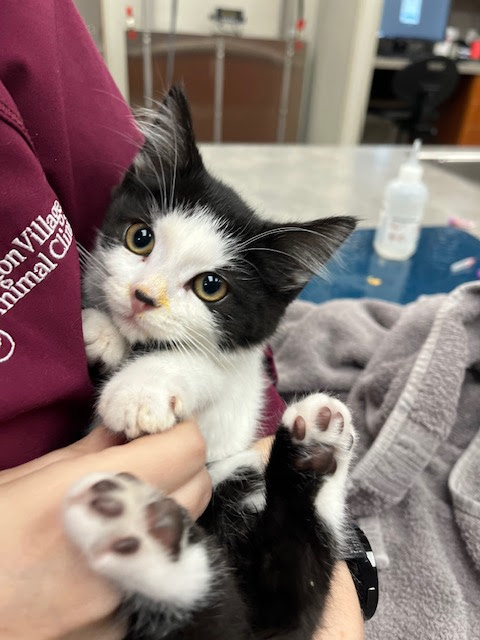
What are the most common kitten health questions?
Kittens can be an incredibly rewarding new addition to any family. They’re playful, curious, and, above all, adorable. As small as they are, though, they’re a big responsibility. If you’re welcoming a new kitten into your home, whether you’re a first time cat owner or a veteran, you naturally have lots of questions about how best to care for your bundle of joy. Dr. Justine Rasche is familiar with the most common questions people have when they bring new kittens in to see us, and breaks them down for us below!
When should I take my kitten to the vet?
Give us a call when you adopt your kitten to set up your first exam. Scheduling regular vet check-ups for your kitten, typically starting at eight weeks old, is important. Not only do these visits ensure your kitten is growing properly, let us set up a vaccination schedule, and allow you to bring up any health concern you have, they also build an early routine of familiarity with traveling to the vet that will hopefully make visits easier later in their life.
How do I prevent fleas and ticks?
Fleas and ticks can be more than a nuisance; they can cause health issues for your kitten, from carrying parasites (see below) to creating serious skin infections. Dr. Rasche recommends using a monthly topical preventative such as Revolution Plus to keep these parasites at bay. “Even indoor kittens and cats can get internal and external parasites, as they can come in through screen windows, catch a ride on us, or come in with other pets such as dogs,” says Dr. Rasche.
What should I feed my kitten?
Proper nutrition is essential for your kitten's growth and overall health. Opt for high-quality kitten food designed for their specific age group. Consult with us for the best brands for your kitten’s specific needs. “A general guideline is to make sure any diet you are considering is approved by the Association of American Feed Control Officials (AAFCO) and is listed as a food for the kitten life stage,” says Dr. Rasche. She typically recommends Hill’s Science Diet, Royal Canin, or Purina Pro Plan. We can help ensure your cat’s diet meets the necessary nutritional requirements, especially if your kitten has specific needs.
When should I spay or neuter my kitten?
Spaying or neutering helps control the population of homeless pets, but it also has health benefits for the individual pet, including preventing certain types of cancers and even leading to a longer lifespan. Dr. Rasche typically recommends spaying your kitten around six months of age. Your vet can provide personalized advice based on your kitten's health and breed.
What are common signs of illness in kittens?
Understanding the difference between a minor symptom and one signaling a major issue can be difficult sometimes. But recognizing those signs of illness is vital for early intervention.
Respiratory issues: Sneezing, runny eyes, runny nose, loss of appetite and lethargy can be signs of a respiratory infection. “If your kitten has some mild sneezing and clear eye discharge, but is otherwise acting normal and eating well, then you can monitor them at home. If you have any concerns about their energy level, appetite, or the severity of the signs, always give us a call for evaluation,” says Dr. Rasche.
Intestinal issues: Diarrhea, reduced appetite, or mild vomiting can indicate a passing viral infection or dietary intolerance (meaning the kitten ate something they shouldn’t have), but if they persist or lead to weight loss, they could indicate something more serious, such as intestinal parasites or gastrointestinal obstruction. Dr Rasche recommends that if you notice any of these signs for longer than 24 hours or they are not improving, you should call us for an examination.
Sociability: Your kitten may become withdrawn or hide if they are feeling sick. Their energy level and willingness to play may drop, and they may vocalize loudly. If you notice this in your kitten, call the clinic for evaluation.
Skin or ear issues: It is common for a new kitten to come to your home with fleas or ear mites. If you notice that your kitten is scratching at their ears, shaking their head, excessively grooming, or has black specks on their fur, they should be evaluated for external parasites and receive treatment.
What vaccinations does my kitten need?
Vaccinations are crucial to safeguard your kitten against various diseases. The following vaccines are recommended at our hospital and based on recommendations from the American Animal Hospital Association and the American Association of Feline Practitioners (AAHA/AAFP):
- Feline Respiratory Vaccine: this includes protection again panleukopenia (FPV) + feline herpesvirus (FHV-1) + calicivirus (FCV)
- Feline Rabies
- Feline Leukemia (FeLV)
Below is an example vaccine schedule with visits around every four weeks until they are over 16 weeks old:
- 6-11 weeks old: feline respiratory vaccine
- 12-15 weeks old: feline respiratory vaccine, rabies vaccine, feline leukemia
- 16-19 weeks old: feline respiratory vaccine, feline leukemia
Having a kitten in your home can be a seemingly endless source of fun. Their curiosity and boundless energy keep the whole family entertained. But they also have important needs that no one should take lightly. “Bringing a new kitten into your home is such an exciting time and we want to be able to help you provide the very best care for your new family member, says Dr. Rasche. “Setting a good foundation in their first year of life with proper veterinary care and home enrichment will help your new kitten fit right in!”
If you are looking for a veterinarian in the Grand Rapids, Michigan area, contact us today.



